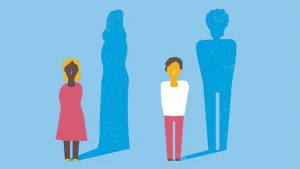
Guys, Let’s Keep It Safe!
Addressing common bacterial, viral, and unique male STI conditions.

Addressing common bacterial, viral, and unique male STI conditions.

Monoclueosis often called mono is a viral infection caused by the Epstein- Barr virus (EBV). This virus is primarily transmitted through saliva from the mouth of an infected person earning the nickname “the kissing disease”.

It would be difficult to imagine ourselves in the place of someone who gets abandoned by family members and faces discrimination throughout their life, at no fault of their own. The reason being, that they are HIV positive. This is what thousands of children and birth givers have been facing globally, especially where awareness is lacking. This article focuses on the prevalence of HIV in pregnant women and infants who are equally at risk.

Unlock the secrets of trichomoniasis – a common yet often overlooked STI. From symptoms to prevention, our guide simplifies the facts. Discover how to protect your sexual health. Read now!

Dive into the mysterious world of the Usher family, where every twist reveals a tale of queerness, tangled relationships, and the haunting repercussions of power.

“Dallas Buyers Club,” a powerful cinematic journey, transcends its narrative to catalyze awareness in sexual and reproductive health. Matthew McConaughey’s portrayal of Ron Woodroof sparks dialogue on HIV, pushing boundaries and challenging stigmas. This blog explores the movie’s profound impact, dissecting its influence on public perception and healthcare advocacy.

Read ahead on this article to get the perfect list for your BL recommendations to get started with the world of BL. There are so many books, so many movies and dramas to watch, and so little time. The perfect time is, therefore, now.

Jump into the world of polyamory! From VIP love rankings to carefree anarchy, we’re spilling the tea on love’s adventurous side. Ready for a romance revolution? Dive right in!

In the ever-evolving landscape of global health, the past 25 years have witnessed significant transformations in the way society addresses the sexual and reproductive health and rights (SRHR) of adolescents. A recent supplement in the Journal of Adolescent Health delves into the strides made, the hurdles faced, and the critical areas that demand attention for the decade ahead. This article aims to explore the positive trends, lingering challenges, and the path forward in advancing adolescent SRHR.

During our busy lives, it’s easy to overlook the shadows that loom behind closed doors. Today, we invite you to explore a topic that often stays hidden—domestic abuse in India. It’s more than just numbers; it’s about the silent struggles of countless women.
This overview touches on the different aspects of domestic abuse against women. It’s time to break the silence, challenge the stigma, and collectively work towards a brighter, safer future.